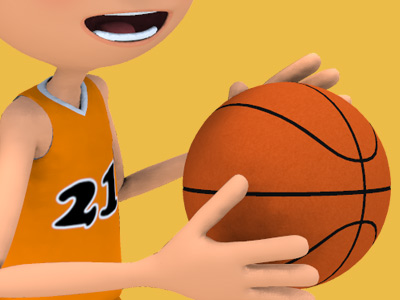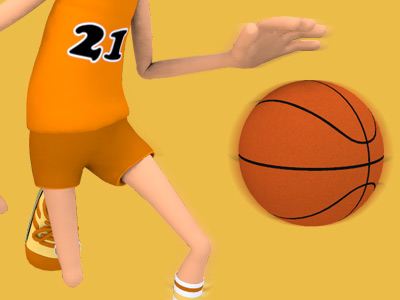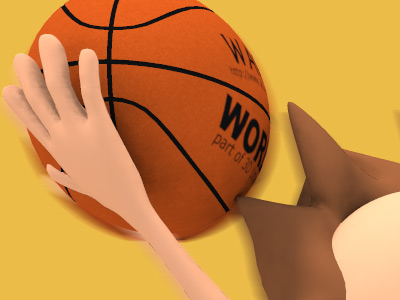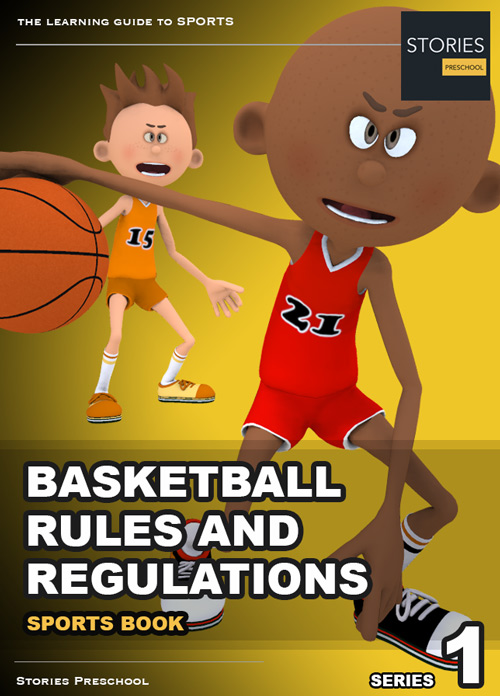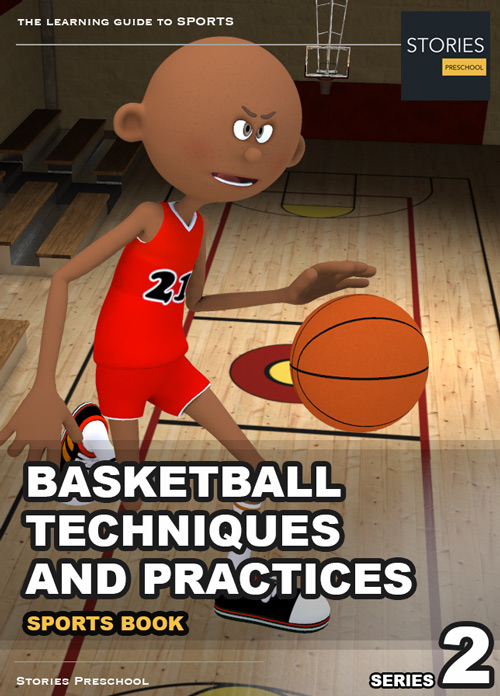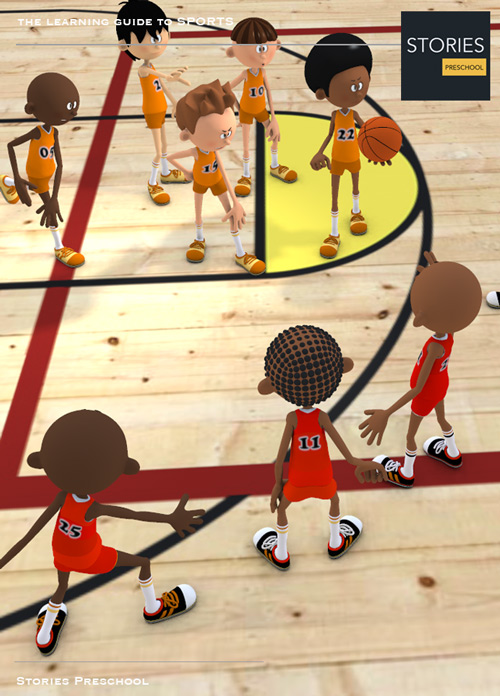Basketball
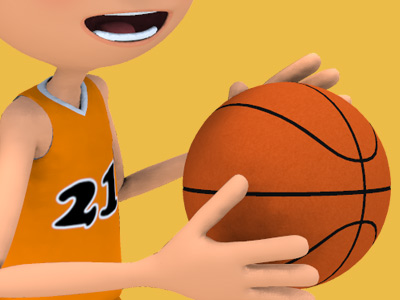
Jump shot
In basketball (and derivatives like netball), a regular jump shot or jumper is an attempt to score a basket by jumping, usually straight up, and in mid-jump, propelling the ball in an arc into the basket. It is accomplished by the player bringing his or her elbow up until it is aligned with the hoop, then sent towards the hoop in a high arc. It is considered the easiest shot to make from a distance. The purposes of the jump are to shoot from a higher position and therefore make it more difficult for the defender to block the shot. It is the most effective in open play but can prove to be hard when there is a taller player in front of the shooter. There also exists another variant of a jump shot by shooting during the upwards movement of the jump to put more power behind the shot, this shot is usually done by women or players lacking enough force to allow far distance shots. This shot has other advantages like a quicker release and therefore a faster execution time (comparable to the set-shot) and several disadvantages like a lower shooting height and less time for the shooter to aim in comparison to the mid-air jump shot. Other critics feared indecision once in the air.
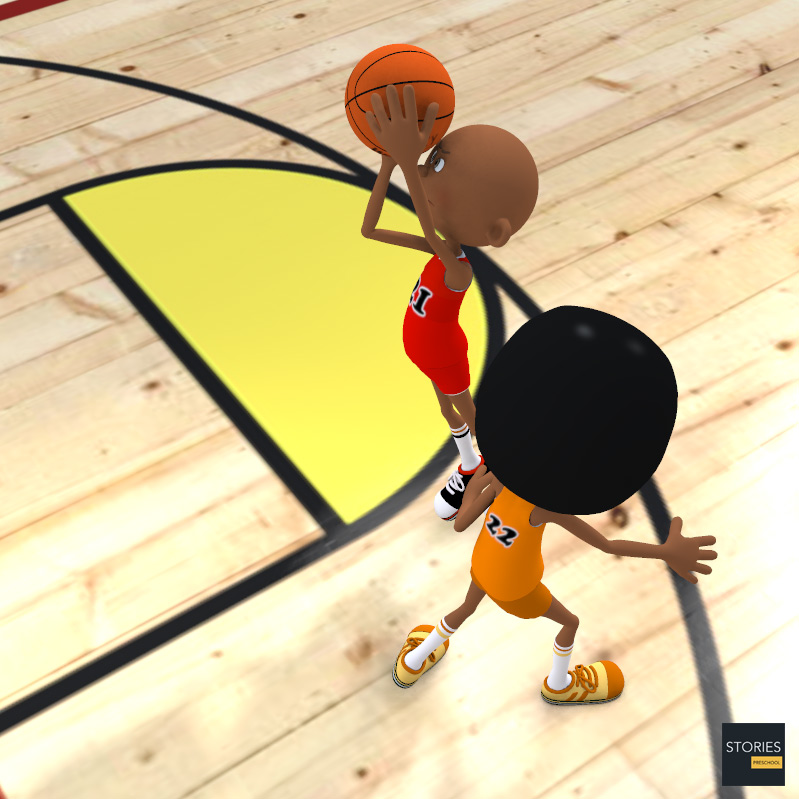
Debate still continues as to who invented the jump shot. In his book, The Origins of the Jump Shot, author John Christgau makes a strong case that it was Ken Sailors in May 1934. Sailors went on to play for the University of Wyoming and was selected as MVP of their 1943 NCAA Championship team. Sailors also played for five different teams in the old American Basketball League. Other people that Christgau credits with the jump shot are Glen "Glenn" Roberts, Myer "Whitey" Skoog, John "Mouse" Gonzales, Bud Palmer, Davage "Dave" Minor, “Jumping” Joe Fulks, Johnny Adams, and Belus Smawley.
In the NCAA collegiate archives, John Miller Cooper, who played at the University of Missouri in the 1930s, is recognized as the person to hoist the first jump shot.
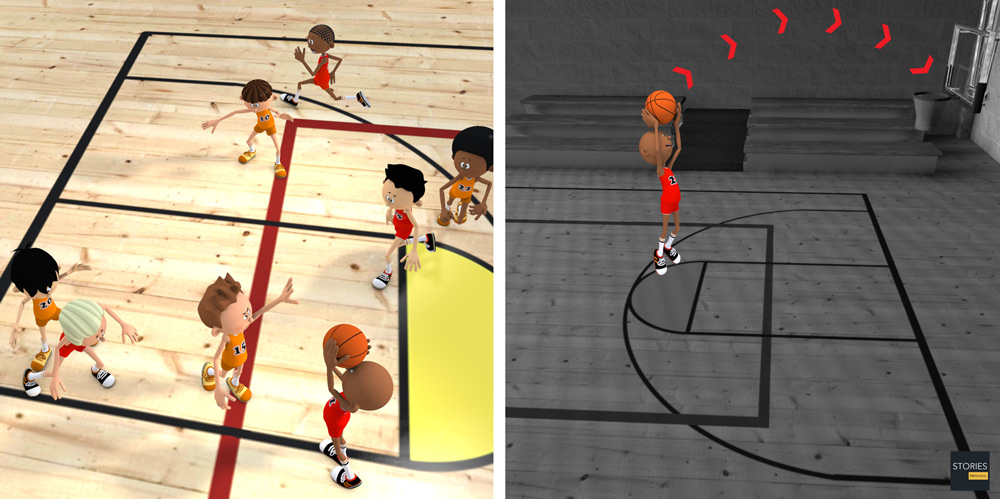
Today, the jump shot has many varieties, such as the "turnaround jumper" (facing away from the basket, then jumping and spinning towards it, shooting the ball in mid-air); the "fadeaway" (jumping away from the basket to create space); and the "leaning jumper" (jumping towards the basket to move away from a trailing defender). Many, however, have overlooked the "hook shot" as a type of jump shot (the offensive player, usually turned perpendicular to the basket, gently throws the ball with a sweeping motion of his arm in an upward arc with a follow-through which ends over his head). It is an art mastered by very few, but for those who have, instituted a lasting impact on the game today.
Because a defender often has to jump to block a jump shot, an offensive player can try to get his defender in the air at the wrong time by using a pump fake. If the offensive player then jumps into the defender, it is a defensive foul on the defensive player.
SPORTS
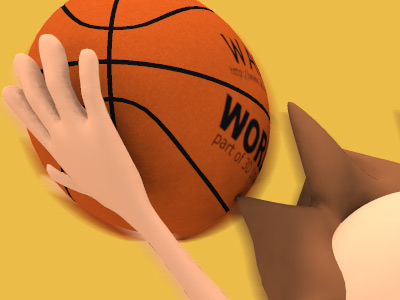
RESOURCES
This article uses material from the Wikipedia articles "Basketball" and "Jump shot (basketball)", which is released under the Creative Commons Attribution-Share-Alike License 3.0.
© Stories Preschool. All Rights Reserved.
